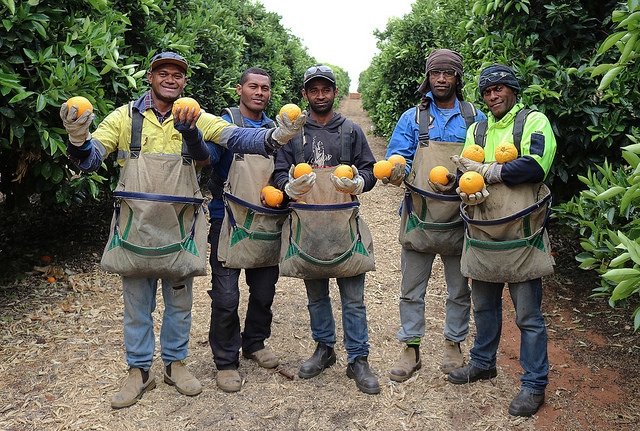There’s good news for Vanuatu’s seasonal workers this week with the announcement that 170 workers will be able to go to Australia for the mango season.
The workers will go to the Northern Territory in a pilot program designed to meet industry shortages.
National Farmers’ Federation Chief Executive Officer, Tony Mahar says it’s a “pragmatic decision”. Under the arrangement, eligible workers must return a negative COVID-19 test before departing and be required to self-isolate for 14-days after arriving in Australia, before commencing work. Mango farmers will also have to show that they are unable to secure local workers.
“No one wants to see fruit and vegetables wasted and this trial will help make sure that doesn’t happen,” Australian agriculture minister David Littleproud says. “This trial will see up to 170 workers under the Seasonal Worker Programme come to Australia to help with the 2020 harvest, with more workers to potentially follow subject to a review of the first cohort and approval for additional numbers by the NT Government.”
Fiji, Kiribati, Nauru, Papua New Guinea, Samoa, Solomon Islands, Timor-Leste, Tonga, Tuvalu and Vanuatu are eligible to participate in the Pacific Labour Scheme. It’s unclear at this stage, which of these nations may send workers to the Northern Territory if the trial goes well and it is extended.
Labour mobility programs are a likely topic of discussion at the Pacific Island Forum Economics Ministers Meeting (FEMM) next week as both hosting countries (Australia and New Zealand) and supplying countries are FEMM participants.
The Director of the Development Policy Centre at the Australian National University, Stephen Howes says Pacific governments need to be prepared to let their workers leave for seasonal work. Similarly, New Zealand-based research fellow, Charlotte Bedford says there will be a demand for labour for the approaching season (September/October) but there are still a number of logistical questions to be addressed such as which workers will be employed (e.g. those who may have just returned or those who have missed out on deployment), and who pays for quarantine.
“When workers return at the moment, our current quarantine requires they will have to self-isolate in a quarantine facility for two weeks and employers are very keen to get in place a work bubble so that workers can go back to the work site and quarantine on the work site and start straight away,” Bedford says.
University of the South Pacific Senior Economist Neelesh Goundar believes there would be an appetite for this work from Fijians.
“ If organised well and if it’s targeted well, there certainly will be lots of workers who will be willing to go and work until the Fiji economy rebounds or tourism opens…if something can be implemented sooner [rather] than later, that would go a long way to helping households, especially those who have lost jobs here in Fiji.”
